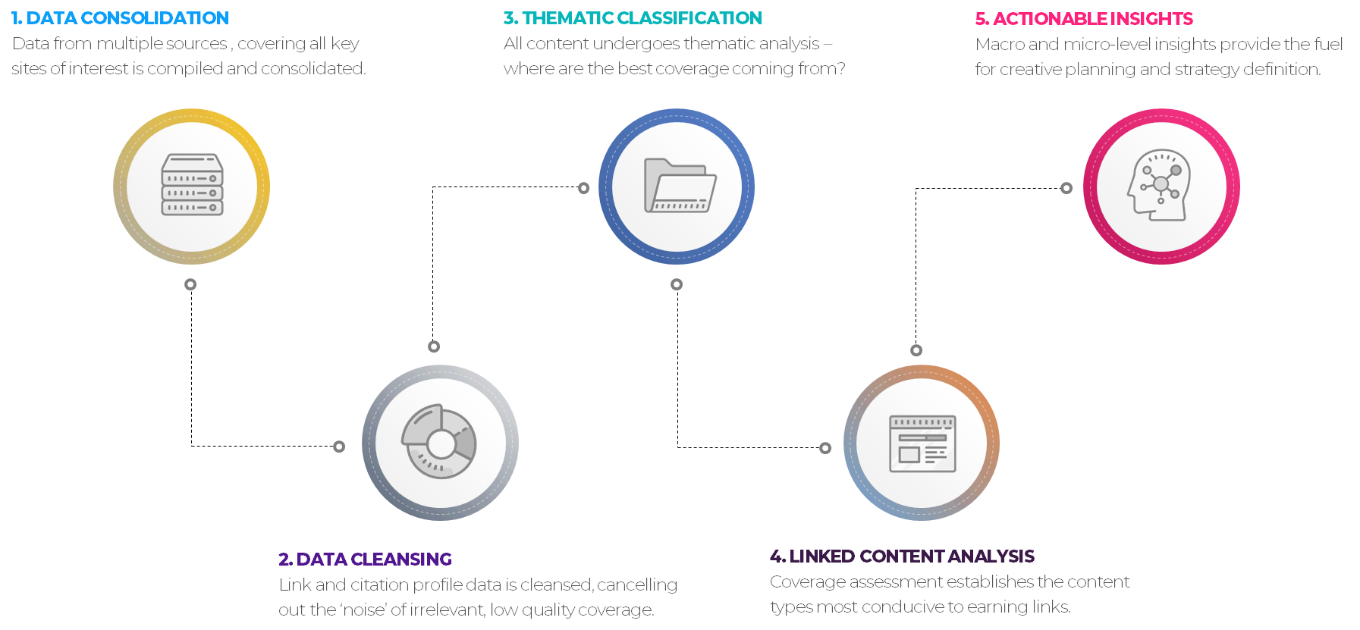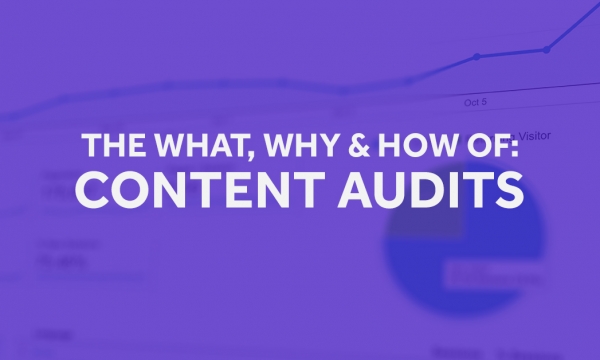With the backing of artificial intelligence (AI) and data-driven insights, content creators can craft content that is hyper-relevant to their audience.
Much is made of artificial intelligence in content spheres. AI-backed systems are now capable of writing their own articles, producing news reports and penning film screenplays with near human-like invention.
You’ll likely have come across articles prophesying content disaster or heard the grumblings of fellow marketers wondering if a creatively minded machine will eventually usurp them and leave them out of a job. So, is content focused AI something to fear?
The short answer is no. Rest assured content marketers, you need not brush up the CV yet – in fact, artificial intelligence systems are helping marketers refine their work and produce effective content personalised to their audience.
Content intelligence is becoming a useful tool in the content marketers kit and not one that is likely to take over anytime soon.
What is content intelligence?

Content intelligence is a set of systems that use data reports to offer insights and improvement suggestions to a marketer’s content strategy.
The systems and technologies used include artificial intelligence, machine learning and data analytics, all working collaboratively to better understand how a piece of online content is consumed.
By pulling on multiple resources and data feeds, a content intelligence system can analyse current content, audience behaviour, competitor performance and more.
The system can then make suggestions of improvement, from ways to enhance the effectiveness of a piece of content based on where on page the audience are bouncing, to suggesting when to post content to a social channel based upon when a target audience is more likely to be online.
By using these insights, content marketers can improve the impact and value of their online piece, better matching it with the needs of their customers and ensuring every piece of online content has an effective ROI.
Data driven
Multiple sources can contribute to a content intelligence system, including:
- Web analytics
- Business metrics
- Online sentiment
- Customer feedback
- Competitor analysis
- Wider web content analysis
- Customer buyer personas
These aren’t the only sources by any stretch, the content intelligence net is cast wide. By then making sense of the data, such a program can suggest improvements to a content creator.
Making suggestions
Data-backed content intelligence shapes several areas, driving improvements in on-page content, leading to better audience interaction and content worth. Such areas include:
- Creating content that is more effective at producing sales and leads by optimising for different stages of the buyer’s journey.
- Engaging customers with more relevant on-page content based on data-backed audience personas, leading to a more engaged customer base.
- Boosting brand awareness by suggesting what to share, when and where across your social channels based on when and where your target audience is likely to be.
- Streamline a business’ current content by combining pages or keyword-specific information via analysis of a content library, improving customer journeys and preventing your own content from competing against itself in SERPs.
- Make predictions for future content changes based on previous audience data and insights, meaning you can plan effective strategies and content calendars that follow predicted audience trends.
- Create detailed briefs based on current content performance and audience requirements and interests, improving content ROI.
Content personalisation
Digital marketing is already personalised – from personalised emails arriving in your inbox, to website content targeting specific buyer personas or target audiences.
Content intelligence allows for personalisation on an individual basis.
As artificial intelligence and smart technology becomes ever more perceptive, the ability to drill down into data sets and deliver ever more niche content to an audience becomes increasingly more useful. The more refined your data, the more personalised your content and, in theory, the higher chances you have of developing a bond with your audience.
Intelligent strategies
A content intelligence system can be an effective tool in the content marketer’s kit. Competition online is fierce and standing out from the crowd is more important than ever. With detailed insights and impactful data resources, your next client content strategy can be hyper-focused to your audience, ensuring each content piece pulls its weight, delivers the right message and drives a creatively backed return on investment.
It is one of the many reasons why Stickyeyes developed an in-house tool, called Vantage. We knew that it was often difficult to identify which content topics and ideas would help those brands to make that impression and achieve their goals – particularly those brands that cover many different niches, service areas and product lines.
Vantage uses data and AI to identify key gaps in a brand’s external content strategy, using data to identify the topics on which a brand is being spoken about widely, and where it is being spoken about much less than it should be.

This approach therefore allows us to develop a much clearer picture of the context in which a brand is being discussed across the wider web and, using this this thematic classification, we can make strategic decisions on where activity should be focused to address those gaps and where resources should also be placed to strengthen and protect those stronger positions.
AI is an aid, not a threat
Artificially intelligent content systems are not something to be fearful of, but rather just one of many new developments and advancements available to the content creator in an ever-evolving field. Rest assured then, content AI is here to help you excel as a marketer, rather than write your next job application for you.


